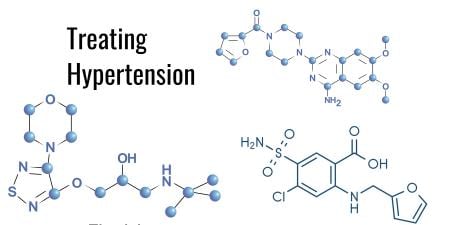Three colleagues and I have just published a systematic literature review demonstrating that pharmaceutical research funded by drug companies is more than 4 times as likely to favor the drug made by the sponsor than research funded by other sources.1 This finding extended to pharmaceuticals that treat a wide range of diseases such as osteoarthritis of the knee, multiple myeloma, various psychiatric problems, Alzheimer's disease, and venous thromboembolism. The totality of the evidence reported in our meta-analysis of a subset of homogeneous studies suggests that there is some kind of systematic bias to the outcome of published research funded by the pharmaceutical industry.
Our results are quite disturbing given that in Canada and the United States the pharmaceutical industry is the largest direct funder of medical research. In the US in 2002, the industry outspent the National Institutes of Health by $26.4 billion to $24 billion.2 All of the world's leading medical journals publish industry-sponsored research; doctors and scientists need to be able to have confidence in the conclusions of this research. We are calling for a major push toward making the process of research and publication more transparent.
The data we examined did not allow us to reach any definitive answers about the source of outcome bias, but we think there are 2 possible sources––publication bias and the use of inappropriate comparator agents. The reluctance of journals to publish negative findings is a well-known form of publication bias, but there are other forms this bias can take. In the case of some negative findings, pharmaceutical companies may own the data, and, naturally enough, are not interested in submitting these unfavorable findings to a journal. Researchers may self-censor, reasoning that if they publish results showing the inferiority of a company's products it may be more difficult to obtain research funding from a company. In some instances, companies help researchers write up their results because the investigators do not have the time or lack the necessary skills to do it themselves. Will a company be willing to assist in writing up a research trial that does not favor its product?
Appropriate comparative trials between drugs are frequently lacking and are often replaced by trials against placebos. In instances where there is a strong placebo effect or where the course of a disease is highly variable, placebo-controlled trials are justified. In other instances, however, trials may use a placebo for comparison as a way of producing positive results for the drug being tested. In trials where 2 active drugs are being compared, the doses may not be equivalent. For example, the dose of the comparator may be too high––leading to more side effects––or too low––leading to lesser efficacy. It should be noted that, in the literature we examined, we could not determine who was responsible for the choice of the comparator agent––the sponsoring company, the investigators, or a regulatory authority.
Some steps have already been taken to improve the reporting of randomized clinical trials. An international group of investigators, statisticians, epidemiologists, and biomedical editors met to revise the CONSORT statement in 2001.3 Journals that follow these recommendations, give their readers a transparent rationale for why the study was undertaken and how it was conducted and analyzed. That same year, the editors of 13 major medical journals, including JAMA, CMAJ, and Lancet, issued a declaration regarding publication requirements for their respective journals. These standards require authors submitting a manuscript to disclose all financial and personal relationships between themselves and others that might bias their work. They must describe the role of the study sponsor(s) in study design and the collection, analysis, and interpretation of data. Authors must also disclose the trial funders' involvement in the writing of the report and the decision to submit for publication; and, in certain cases, editors may ask authors to sign a statement such as "I had full access to all of the data in this study, and I take complete responsibility for the integrity of the data and the accuracy of the data analysis."
In my opinion, and that of my collaborators, more needs to be done to improve the integrity of clinical research reports. We echo the repeatedly made suggestion that all clinical trials be registered prospectively in order to prevent publication bias. Such a registry would allow interested parties to see if there were trials that did not make it to publication and analyze any links between funding status and publication. We also recommend that authors and editors consider including a statement about the beliefs of the investigators prior to conducting research about the uncertainty of the treatments they plan to study. Uncertainty about the superiority or inferiority of the different agents being compared would assure readers that comparators were not chosen to ensure the final outcome of the study.
We recommend other measures such as, to the extent possible, disengaging pharmaceutical companies from the design of clinical trials; this is the responsibility of the investigators. Drug companies should restrict themselves to funding the trials. Assessment scales for the methodologic quality of research should be expanded to include a measurement of the appropriateness of the comparator(s). All journals that publish clinical trials should embrace the statement from the 13 editors on publication requirements. Finally, readers need to be alert to the funding sources of clinical trials, whatever they may be, and take into consideration whether the sponsoring group may have influenced the trial results.
References
- Lexchin J, Bero LA, Djulbegovic B, Clark O. Pharmaceutical industry sponsorship and research outcome and quality: systematic review. BMJ. 2003;326(7400):1167-1170.
-
Pharmaceutical Research and Manufacturers of America. PhRMA: Industry Profile 2003 (Chapter 2). Accessed June 30, 2003.
-
The CONSORT statement is an important research tool comprising a checklist and flow diagram to help improve the quality of reports of randomized controlled trials. The statement offers a standardized way for researchers to report trials and is intended to make experimental process more transparent so that readers can more appropriately evaluate the study's validity. See CONSORT. Available at: http://www.consort-statement.org/. Accessed June 27, 2003.



